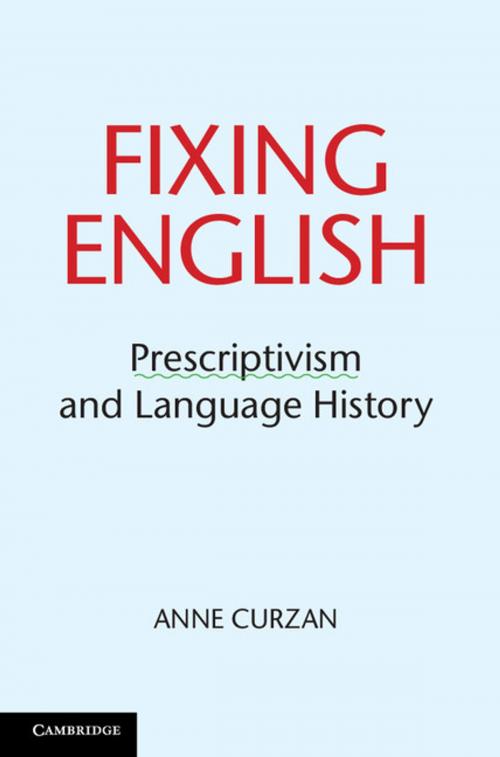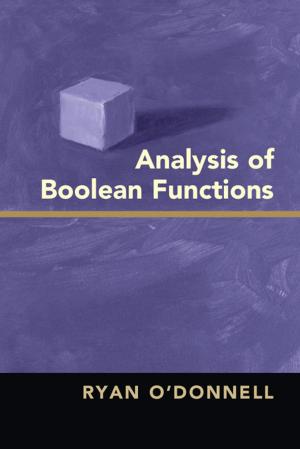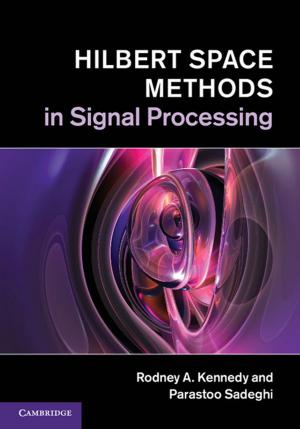Fixing English
Prescriptivism and Language History
Nonfiction, Reference & Language, Language Arts, Linguistics| Author: | Anne Curzan | ISBN: | 9781139949118 |
| Publisher: | Cambridge University Press | Publication: | May 8, 2014 |
| Imprint: | Cambridge University Press | Language: | English |
| Author: | Anne Curzan |
| ISBN: | 9781139949118 |
| Publisher: | Cambridge University Press |
| Publication: | May 8, 2014 |
| Imprint: | Cambridge University Press |
| Language: | English |
Over the past 300 years, attempts have been made to prescribe how we should and should not use the English language. The efforts have been institutionalized in places such as usage guides, dictionaries, and school curricula. Such authorities have aspired to 'fix' the language, sometimes by keeping English exactly where it is, but also by trying to improve the current state of the language. Anne Curzan demonstrates the important role prescriptivism plays in the history of the English language, as a sociolinguistic factor in language change and as a vital meta-discourse about language. Starting with a pioneering new definition of prescriptivism as a linguistic phenomenon, she highlights the significant role played by Microsoft's grammar checker, debates about 'real words', non-sexist language reform, and efforts to reappropriate stigmatized terms. Essential reading for anyone interested in the regulation of language, the book is a fascinating re-examination of how we tell language history.
Over the past 300 years, attempts have been made to prescribe how we should and should not use the English language. The efforts have been institutionalized in places such as usage guides, dictionaries, and school curricula. Such authorities have aspired to 'fix' the language, sometimes by keeping English exactly where it is, but also by trying to improve the current state of the language. Anne Curzan demonstrates the important role prescriptivism plays in the history of the English language, as a sociolinguistic factor in language change and as a vital meta-discourse about language. Starting with a pioneering new definition of prescriptivism as a linguistic phenomenon, she highlights the significant role played by Microsoft's grammar checker, debates about 'real words', non-sexist language reform, and efforts to reappropriate stigmatized terms. Essential reading for anyone interested in the regulation of language, the book is a fascinating re-examination of how we tell language history.















